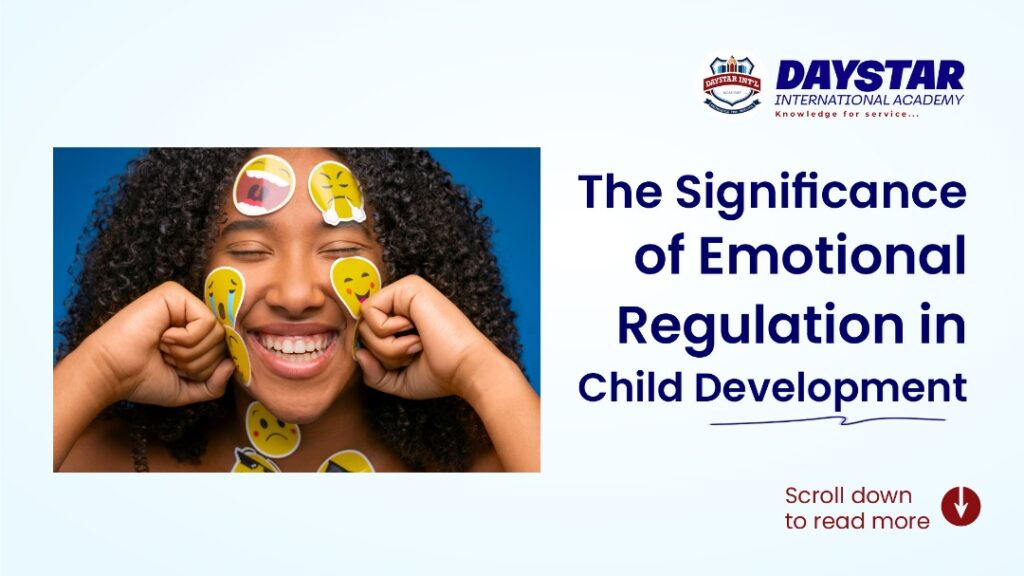
As parents and educators, one of the greatest gifts we can give children is the ability to understand and manage their emotions. Emotional regulation is a key skill that helps children navigate their feelings, build positive relationships, and handle challenges effectively. But what exactly is emotional regulation, and why is it so important in child development?
What is Emotional Regulation?
Emotional regulation is the ability to recognize, understand, and manage emotions in a healthy way. It’s not about suppressing feelings but rather finding constructive ways to express them. For example, instead of throwing a tantrum when frustrated, a child might learn to take deep breaths or ask for help.
Why is Emotional Regulation Important?
- Builds Strong Relationships: Children who can manage their emotions are better at cooperating, resolving conflicts, and maintaining friendships.
- Boosts Academic Success: Emotional regulation helps children focus, manage stress, and stay motivated, which are essential for learning.
- Enhances Problem-Solving Skills: When emotions are under control, children can think more clearly and make better decisions.
- Promotes Mental Well-being: Learning to manage emotions reduces the risk of anxiety, stress, and other mental health challenges.
How Can Parents and Teachers Support Emotional Regulation?
Here are some practical ways to help children develop this crucial skill:
- Model Healthy Emotional Management:
Children learn by watching adults. Show them how you handle your own emotions. For example, if you’re feeling overwhelmed, say, “I’m feeling stressed right now, so I’m taking a few deep breaths to calm down.” - Label Emotions:
Help children identify and name their feelings. Instead of saying, “Don’t cry,” try “I see that you’re feeling sad. Do you want to talk about it?” This helps them understand their emotions and enables them to handle it better. - Teach Coping Strategies:
Introduce simple techniques like deep breathing, counting to ten, or finding productive ways to control emotions. Encourage children to write, read, sing, or engage in physical exercise when they’re upset. These activities not only help them calm down but also provide healthy outlets for their feelings. - Create a Safe Environment:
Children are more likely to express their emotions openly when they feel safe and supported. Create a judgment-free zone where they can talk about their feelings without fear of being criticized. - Encourage Problem-Solving:
Instead of fixing every problem for them, guide children to come up with their own solutions. Ask questions like, “What do you think we can do to make this better?” - Praise Efforts:
Celebrate small wins. For example, if a child calms themselves down after being upset, acknowledge it; “Great job calming yourself down! That was very mature of you.”
Lastly, emotional regulation is a cornerstone of child development, influencing how children learn, interact, and grow. By equipping them with the tools to manage their emotions, we empower them to lead happier, healthier lives.
At Daystar International Academy, we believe in nurturing not just academic success but the emotional well-being of every child. Let’s work together to raise emotionally resilient kids who are ready to take on the world with confidence and kindness.

